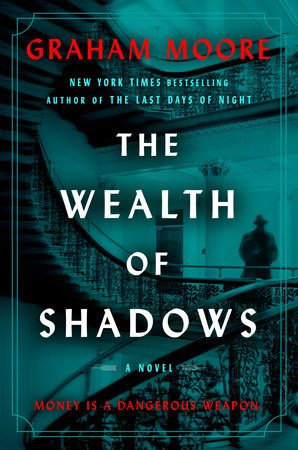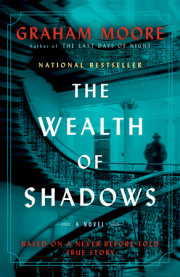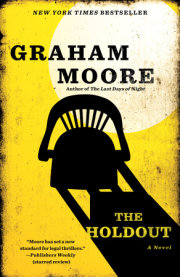1
Straphanger “It might make sense just to get some [bitcoin] in case it catches on. If enough people think the same way, that becomes a self fulfilling prophecy.”—Satoshi Nakamoto, the pseudonymous inventor of bitcoin
August 23, 1939
Ansel Luxford was on his morning commute, his knees wobbling with the routine swerves of the Marshall Avenue trolley, when he glanced out at the banks of the Mississippi River and noticed a growing column of Nazis.
More than a hundred men descended in rows from the St. Paul side of the bridge. They strode three by three. Neat and orderly, in matching corduroy pants, blue ties, and tin-colored shirts. Most of the men had little red L’s sewn on their front shirt pockets. Probably handstitched by their Nazi wives, Ansel reckoned, who were likely at home that very moment raising their hordes of Nazi children.
The trolley slowed, then began its climb onto the bridge. The flour mills of Minneapolis emerged in the distance. But Ansel barely heard the shriek of the trolley wheels, he was so horrified by the sight of a Silver Shirt march smack dab in the center of the Twin Cities.
Just that morning, he had sat at the breakfast table as Angela, papers spread out in front of her like ramparts against the day, recited the fresh, rotten news: Hitler had just sent a hundred thousand troops to stand ready for invasion along the Polish border. The Soviets had given tacit approval, agreeing the day before to appease the Germans with a treaty of nonaggression. Britain and France were frantically seeking diplomatic solutions in the hopes of avoiding war. The United States was not seeking any sort of solution at all. She remained resolutely neutral in matters of European conflict. Angela carried the Morning Standard to the stovetop so that she could heat the baby’s glass bottle while informing him of a new Elmo Roper poll: A mere twelve percent of Americans thought the United States should involve itself in any way in this European mess. The percentage who believed America should involve herself militarily? Two percent.
Angela spoke the digits with disgust. Who were these people? What loafer could be comfortable sitting by, guffawing to Amos & Andy every week, while the world went all to hell?
Only a fool could believe that the murderous fascists threatening civilization would remain an ocean away; they weren’t even on the other side of the Mississippi.
The trolley shuddered as it ascended the bridge, toward the marching Nazis. Ansel was crushed against his fellow straphangers: working men and women in faded linen suits and sale-price Donaldson’s dresses on their way to the Fourth Street banks and the Pillsbury mills. He collided into the shoulder of a woman who wordlessly adjusted her pillbox hat.
Then, for an instant, her eyes strayed from the Perry Mason novel in her gloved hand. She glanced outside. Surely when she saw the threat to civilization looming just beyond the windows she would exclaim in horror. Anticipating her scream, he prepared to soothe her.
She promptly returned to her reading.
He peered around the car. The commuters politely avoided one another’s eyes, including his. If any of them were alarmed by what was happening, they gave no hint of it.
He felt a sudden urge to scream.
This wasn’t even the first American Nazi rally he had seen in Minneapolis. But it was by far the biggest.
He couldn’t make out the rear of the march. Row after row of uniformed men appeared at the bridge’s apex before descending toward St. Paul. He figured they’d be headed to the Ark Lodge for what had become their monthly barn burner. Angela would read aloud their vile speeches from the next morning’s paper. What of them she could stomach.
The men would no doubt be treated to high-toned dudgeon about the virtues of the “Hitler program” and how it might be applied, productively, to the Jews and Negroes of the United States. They would bask in the exaltation of dictatorship as the most advanced form of government. They would be urged to acquire shotguns and ammunition, though the details of their use would tactfully be left to each listener’s imagination. The Silver Shirt leadership was clever enough always to leave their threats of violence implied, never precisely articulated. They knew better than to get arrested for incitement. At least not now, as their ranks swelled. As their rallies ripened: plump and anger-red. Something was going to burst.
The trolley rose to meet the marchers. The fascist front was no more than twenty feet away on the pedestrian pathway.
Ansel could very well picture what a man of principle would do in this situation: He would leap right off the trolley and run up to the biggest, blondest Nazi of the bunch. “Not here,” he would proclaim. “You can have Germany, you can have Italy, but not here.”
He picked out the very man he ought to say it to. He hadn’t been in a fight since he was a schoolboy, but he could sure see himself getting into one today. The Silver Shirt would slug him first. Maybe Ansel’s nose would break, maybe he’d fall as his blood dripped onto the pavement. But he’d stand back up and he’d hold his ground as the whole pack joined in, beating him raw. The thought of violence was energizing. Their fists striking his body, the soles of their shiny black boots crushing his spine. It wouldn’t take them a minute to crack his skull.
For an instant, he even pictured a new headline in the morning paper: “Minnesotan Father Killed by Nazi Rally.” A death like that might wake a few people up. It might become a tragic but noble fuel for a much-needed resistance. He imagined Angela’s face, heartbroken. Then he wondered whether in his sacrifice he might finally become the man she’d always believed he could be. Their daughter, Angie, would be too young, he figured, to have memories of him. But he imagined her growing up with the nourishment of her mother’s proud stories. She’d tell of his great deed to her friends, her classmates, one day to her husband.
He knew full well that the name Ansel Luxford was never going to grace a history book. But if he leapt off the trolley in that moment it might at least remain on the lips of his descendants. Uttered, in passing, on those occasions when conversation turned to the dark old days, and to those humble few who’d bravely faced the coming end of the world and done what little they could, yet all they could, to help.
Then, having pictured all of this with perfect clarity, Ansel did what everyone else was doing: nothing.
He harbored no illusions about the kind of man he was. A middle-aged tax attorney in a neatly knotted bow tie. A husband whose taste for Scotch whiskey was resulting in a slowly plumping waistline. A father who crawled out of bed most mornings with a lumbago around his middle so awful that he had to swallow two Cafaspirins before his coffee.
Once upon a when, maybe, he had been some kind of a boy wonder. After he’d fled his old man’s Iowa farm, he’d set his sights higher than the endless blue sky: a top college, the best law school, a prestigious government position, eventually a partner in a lucrative private practice. Boxes he’d checked, one by one, with strangely diminishing satisfaction. Until he’d ended up right here, in the same place everybody does: the middle. The great yawning expanse of the middle that slowly, inexorably, devours the best and worst alike. Middle age. Middling success. Money but not wealth. Status but not stature. Good work, but not, if he was being honest, a legacy of Good Works.
He knew who he once was: a headstrong kid with nothing to lose but his shoelaces as he moxied his way ahead in the world. And he knew that nowadays he was a man with responsibilities, not least among them a wife and a daughter who depended on him not to get his skull cracked in on the way to the office.
The trolley rattled to the top of the bridge and then slowly rolled down the Minneapolis side. He turned to see the last of the Silver Shirts disappear behind the sloping apex.
He looked at his fellow nine-to-fivers blithely ignoring the evil amassing on American soil, then stared at the polish of his leather shoes. He knew that if he faced anyone’s gaze, he would crumble with shame.
The trolley clanged into Minneapolis. One by one, the straphangers got off at their stops.
As it happened, Ansel Luxford’s opportunity to change the course of human history would not arrive until the following Monday.
Copyright © 2024 by Graham Moore. All rights reserved. No part of this excerpt may be reproduced or reprinted without permission in writing from the publisher.









